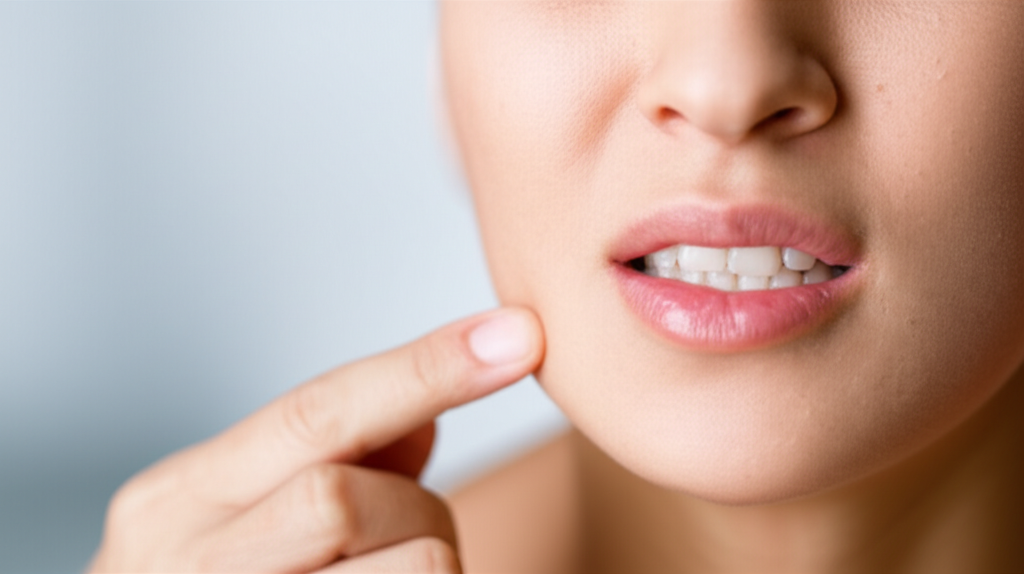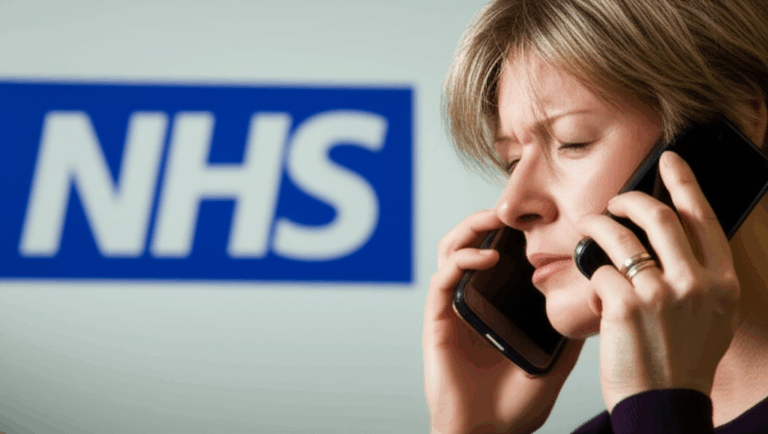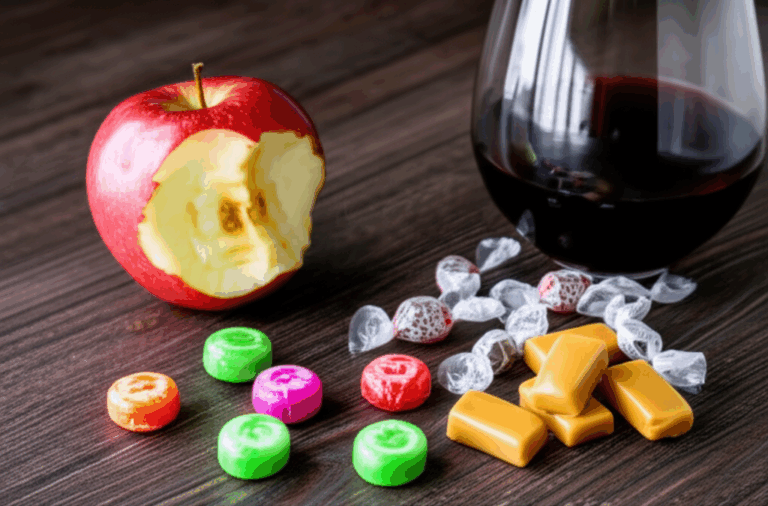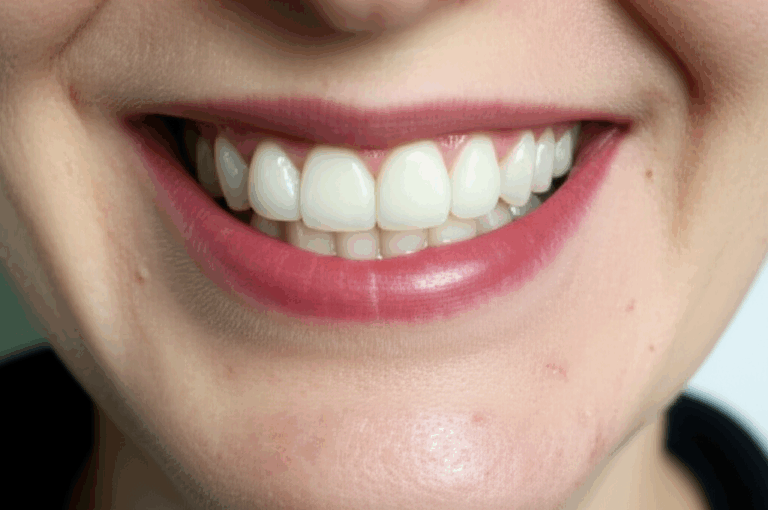
How to Get Rid of Numbness After a Dentist Filling: A Quick Guide to Recovery & Relief
We’ve all been there: You walk out of the dentist’s office, the work is done, but your lip, cheek, or tongue feels weird and heavy. You might speak funny, spill your drink, or accidentally bite your cheek because you can’t feel much. If you’re reading this, you’re probably asking, “Is this numbness normal? How long does it last? And is there anything I can do to get back to normal faster?”
First, don’t worry: this feeling is totally normal after dental work, especially after a filling. Still, numbness can feel strange and sometimes a bit worrying. In this guide, we’ll talk about why numbness happens, how long it usually lasts, easy ways to get back to normal faster, how to keep yourself safe, and when you should call your dentist. We’ll give you simple tips, reassurance, and help you feel in control of your mouth and recovery.
What We’ll Cover
- Why Does Numbness Occur After a Dental Filling?
- How Long Does Dental Numbness Typically Last?
- Quick Relief: Practical Ways to Speed Up Numbness Recovery
- Managing Numbness Safely While You Wait
- When to Be Concerned: Signs of Lingering or Abnormal Numbness
- Healthy Takeaway: Your Next Steps Toward Relief and Confidence
Why Does Numbness Occur After a Dental Filling?
Let’s get right into it: Why do I feel numb after a dental filling? Did something go wrong, or is this just how things go?
Simple Explanation: It’s the Numbing Shot
When you get a filling, your dentist wants you to be comfortable and not feel any pain. This is where local anesthetics like Lidocaine, Articaine, or Bupivacaine come in. Think of them as little “power-down” buttons for the nerves in your mouth. The dentist puts the medicine near your tooth or in the nearby tissue, which temporarily blocks the nerves that send messages to your brain. With the signals stopped, pain can’t reach you, and you stay pain-free during the process.
Which Nerves Get Numb?
The main ones are the inferior alveolar nerve (makes your bottom jaw and lip numb), the lingual nerve (affects your tongue), and sometimes branches of the trigeminal nerve (go to cheeks and gums). Which nerve gets numb depends on which tooth your dentist worked on.
Think of your nerves like fast roads sending feelings to your brain. The numbing shot puts up a roadblock for a little while.
How Long Does Dental Numbness Typically Last?
Now you know numbness is normal. But you’re probably asking, “How long before I can feel my mouth again?” Here’s what to expect:
Average Numbness Time
- Lidocaine (with Epinephrine): 2–4 hours
- Articaine (Septocaine): 3–6 hours
- Bupivacaine (Marcaine): 4–8 hours, sometimes up to 12 hours in soft tissue
- Novocaine (not used much anymore): 1–2 hours
Most people first notice a tingling feeling as the medicine wears off, then slowly feel normal again. Kind of like your foot “waking up” after being asleep.
Why Can Numbness Last Longer or Shorter?
- Type and amount of numbing medicine: Some last longer, especially for bigger jobs.
- Your body’s speed: If your body uses up medicines fast, you might feel normal sooner.
- Where the shot was: Spots with less blood flow (like the lower jaw) can stay numb longer.
- With or without epinephrine: Some medicine uses epinephrine to keep blood moving slowly, so the numbing lasts longer—good for avoiding pain, but can be a bother if you’re hungry after!
Quick Tip
If you got several shots or a mix of numbing medicines, don’t be surprised if your mouth stays numb for most of the morning or afternoon. Usually, it goes away after a few hours.
Quick Relief: Practical Ways to Speed Up Numbness Recovery
Now for the question you really care about: How can you make the numbness go away faster? There’s no instant fix, but some easy tricks might help your body get rid of the numbing medicine a little quicker.
1. Boost Blood Flow
Getting more blood to your cheek can clear out the numbing faster. Try:
- Gentle Massage: Lightly rub your cheek on the outside near the numb spot (not inside your mouth, and don’t do this if you have any stitches, cuts, or bruises).
- Warm Compress: Use a warm (not hot!) washcloth on your cheek. Warmth helps bring more blood to the area.
- Move Around: Take a gentle walk, do easy chores, or slowly move your jaw (but don’t chew or bite down). This helps your whole body and might help clear the numbness a bit quicker.
Be Careful: Don’t press too hard on your cheek or work out too hard. You want some gentle movement, not a big workout.
2. Drink Water
Drink plenty of water. Water helps your body clear out the numbing medicine better and keeps everything working smoothly.
Think of your blood as a river washing away the numbing stuff; if you’re thirsty, the river runs slow, but if you drink, your body can clean things out faster.
3. Gentle Mouth Movements
Try wiggling your tongue or slowly opening and closing your jaw. These gentle moves tell your nerves it’s time to get going again. Be careful though—don’t bite or chew until your feeling is back.
4. Caffeine (Just a Maybe)
Some dentists say a little coffee or tea might help the numbness go away a little faster. That’s because caffeine can get your blood moving. There’s not a lot of science to prove this, but if you try, make sure the drink isn’t hot—you could burn yourself and not know it. Try a lukewarm drink and sip slowly.
What Doesn’t Help?
Some websites talk about special rinses or “antidotes” for numbness, but you can’t buy them over the counter. Sometimes, dentists can use a medicine called Oraverse to reverse the numbness, but that’s really just for special cases or long dental work. For regular fillings, your best bet is the tricks above and letting time pass.
Managing Numbness Safely While You Wait
The truth is, you can’t always make the numbness leave quickly, but you can keep yourself safe while you wait.
Don’t Bite, Burn, or Hurt Yourself
When you’re numb, you might forget your lip or cheek is even there. This means you can hurt yourself without knowing it.
- Don’t chew where you’re numb: Chew where you have feeling. If your whole mouth is numb, wait before eating.
- Don’t chew or play with your numb cheek or lip: This is a big deal for kids, who sometimes chew their cheeks and get sores.
- Be gentle with straws: A straw can help you drink, but sucking too hard can make things worse.
- Don’t eat or drink anything hot: You could burn your mouth. Choose cool or room temperature foods and drinks.
Easy Foods While You Wait
- Applesauce or pudding
- Yogurt or smoothies (not too cold!)
- Mashed potatoes
- Soup (just warm, not hot)
Speak With Care
Numb lips and tongue can make talking a little funny! If you have a meeting, you may want to wait until you can speak clearly again. Most people find their speech gets better once the numb feeling goes away.
When to Be Concerned: Signs of Lingering or Abnormal Numbness
What if the numbness just won’t go away? Or what if you start to feel weird things like burning, tingling, or pain?
Here’s when you should contact your dentist.
Numbness That Lasts Too Long
For most fillings, the numbness should be gone between 1 and 4 hours, sometimes up to 8 hours if the numbing was strong. If you’re still numb the next day—that is not normal. Lingering numbness past 24 hours is not usual and means you should call your dentist.
Watch Out for These Problems
Rarely, dental shots can bother nerves, or in rare cases, even hurt them. Watch for:
- Pain or swelling that gets worse: A little tenderness is normal, but a lot of pain or swelling could mean infection.
- Weird feelings: Like burning, “pins and needles,” or shocks that don’t go away.
- Hard to move your jaw: If you can’t open your mouth easily.
- Still numb in lip, chin, or tongue: This might mean the nerve is involved.
What Are Paresthesia and Dysesthesia?
- Paresthesia: Numbness or tingling that sticks around.
- Dysesthesia: A funny or painful feeling.
Lasting nerve injury is rare but can happen. Most times, the feeling comes back in a few days or weeks.
When You Should Call the Dentist
- Numbness or tingling lasting more than 12 hours
- Pain, swelling, or heat near where you got your shot
- Trouble moving your jaw, smiling, or talking
- Any other strange feeling or worry
Dentists want to help you. It’s safer to call sooner than to wait too long.
Your Options Explained: Home Care vs. Professional Help
Let’s make it simple: What can you do at home, and when should you get help?
At Home: Do These Things
- Wait it out: Numbness usually goes away on its own.
- Gently rub the outside of your cheek.
- Use gentle warmth on your face.
- Drink plenty of water.
- Move your jaw and tongue gently.
- Try a little coffee or tea (not hot).
- Eat only soft, cool foods and avoid hard or chewy things.
At Home: Don’t Do These Things
- Don’t chew where you’re numb.
- Don’t eat or drink anything hot.
- Don’t bite or suck on your cheek/tongue.
- Don’t worry if the numbness lasts a few hours. But call if it’s past 12 hours or getting worse.
Go to the Dentist If
If you’re still numb after 12–24 hours, or if you have weird burning, bad pain, big swelling, or your mouth doesn’t move right, it’s time to see the dentist. Sometimes it’s a quick fix or just a check, and sometimes they may send you to a specialist if needed.
Who Is More Likely to Have Prolonged Numbness?
Most people get feeling back right on time. But some people might be more likely to have numbness last longer:
- Lots of shots or shots close to big nerves
- Work on lower jaw or back teeth (the nerves here are bigger, so numbness can spread out more)
- Nerve problems already or past issues with numbness
- Different body wiring: Some people’s nerves are just placed differently.
- Kids: They can also bite their cheeks when numb, so watch them carefully.
Empower Yourself: The Healthy Takeaway
Here’s what you really need to know.
Key Points, Made Easy
- Feeling numb after a filling is totally normal.
- It usually goes away in 1–4 hours, but sometimes a bit longer.
- Safe, gentle tricks (massage, warmth, water, gentle jaw moves) may help feeling come back a little faster.
- Stay safe: Don’t bite, chew, or drink anything hot until your mouth feels normal again.
- If numbness lasts longer than 12 hours or you have pain or weird feelings, call your dentist.
- Most of the time, everything goes back to normal. Nerve injuries are very rare.
How To Be Ready
- Ask your dentist before your appointment about how long the numbness will likely last.
- Get some soft snacks ready at home.
- If you’re nervous, let your dentist know—they might change the medicine if needed.
- If you have questions or worries, don’t be shy about calling your dentist for advice.
Frequently Asked Questions (FAQs)
1. Can I make dental numbness go away right now?
No—there’s nothing that stops it right away, but movement, warmth, and water can help.
2. Is there a shot or medicine to make the numbness go away?
Dentists can sometimes use Oraverse, but it’s for special times and not something you can get yourself.
3. If I eat, will I feel better sooner?
No—eating while numb can lead to biting yourself. Wait until you feel everything before eating.
4. My child is numb after their filling—how can I keep them safe?
Give soft, cool snacks, don’t let them chew their cheeks, and watch them until feeling is back.
5. Is it normal for my face to tingle as the numbness fades?
Yes! That “pins and needles” mean your nerves are waking up.
6. Can I go to work or school after a filling?
Yes, but you might sound funny and shouldn’t eat until you feel your mouth again.
Helpful Resources and Further Reading
- American Dental Association (ADA) Numbness FAQ
- Oral Health Topics: Local Anesthesia
- Tips for Soft Food Diets
- To learn about crowns or bridges, visit a china dental lab
- For information on digital dental technology, check out a digital dental lab
Final Word: You’re in Good Hands
It’s natural to feel a bit unsure or annoyed when your mouth is numb. The good news? This feeling is almost always harmless and goes away quickly. If you follow the tips in this article, stay safe, and check in with your dentist if something feels wrong, you’ll be back to normal soon—and ready for your next visit like a pro.
Here’s to a happy, healthy smile—today and always!
This article is for general info and wellness. For any health worries, always check with your dentist or healthcare professional.
References:
- Malamed, S. F. Handbook of Local Anesthesia. 6th ed. Elsevier.
- American Dental Association: MouthHealthy.org
- Journal of the American Dental Association (JADA)
- Colgate Oral Care Center
This guide is made to be clear, easy, and helpful. The info is up-to-date as of 2024 and aims to answer your questions and make your dental care easier—one answer at a time.








